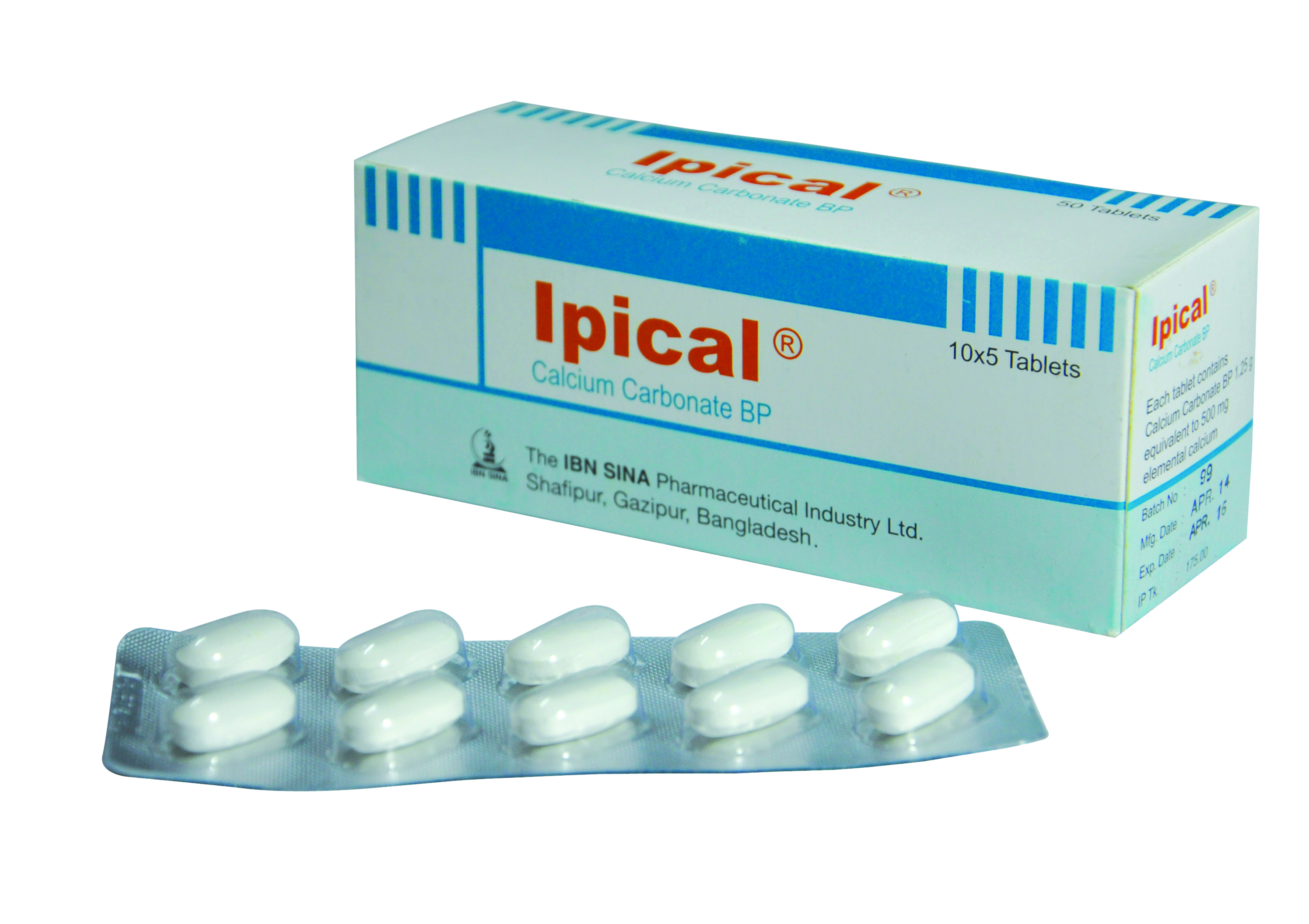
IPICAL
CALCIUM CARBONATE BP
| NAME | STRENGTH | PACK SIZE | DOSAGE FORM |
|---|---|---|---|
| IPICAL TABLET | 500 MG | 50 S | TABLET |
Tablet: Each film coated tablet contains calcium carbonate BP 1250 mg equivalent to 500 mg of elemental calcium.
Calcium carbonate reacts with gastric acid to produce a salt and water. For calcium carbonate the postulated chemical reaction is: CaCO +2HCl =
CaCl +H O+CO . Two grams of calcium carbonate will readily bring 100 ml of hydrochloric acid to a pH above 6. The increase in gastric pH diminishes
the activity of pepsin in the gastric secretion. Up to 30% of the oral calcium load may be absorbed.
Ipical is indicated for the following cases- Indicated in raised calcium requirement e.g. during Pregnancy and lactation, and in children and adolescents at time of rapid growth, inadequate intake of calcium in the diet due to malnutrition, prevention and treatment of osteoporosis, disorders of osteogenesis and tooth formation, latent tetany.
Adult: One Ipical tablet or as directed by the physician. For the prevention of osteoporosis, 1-3 Ipical tablet is recommended generally as a dietary supplement. Doses for children are half of those for adults. A large dose should not be taken without physician's advice.
Adolescent: 1-2 Ipical tablet daily.
Children: One tablet daily.
Calcium is contraindicated in hypercalcaemia, primary hyperparathyroidism, renal failure, hypersensitivity to Calcium.
If there is any pre-existing heart disease or kidney disease, precautions should be taken.
Calcium supplements are generally safe & well tolerated. Orally administered calcium supplements rarely given rise to mild gastrointestinal disturbances, such as constipation, flatulance, nausea, gastric pain, diarrhoea.
Pregnant women: Calcium containing drugs are used widely in pregnancy by way of calcium supplement or antacid therapy. No relationship between malformation in general and calcium exposure has been noted.
Lactating mother: There is no contraindication to the use of calcium carbonate in lactating mother.
It has possible interaction with digoxin, antacids containing calcium, aluminum or magnesium, other calcium supplements, calcitriol or other vitamin-D supplements; tetracycline, doxycycline, aminocycline or oxytetracycline etc. So before taking any of these drugs consultations of the physicians are needed.
Symptoms of overdosage include nausea, vomiting & constipation, headache, loss of appetite, stomach cramps, unconsciousness, dry mouth, diarrhoea, weakness, dizziness or irritability.
Store in a cool & dry place, away from light & moisture.
Each box contains 5×10’s tablet in blister pack.
